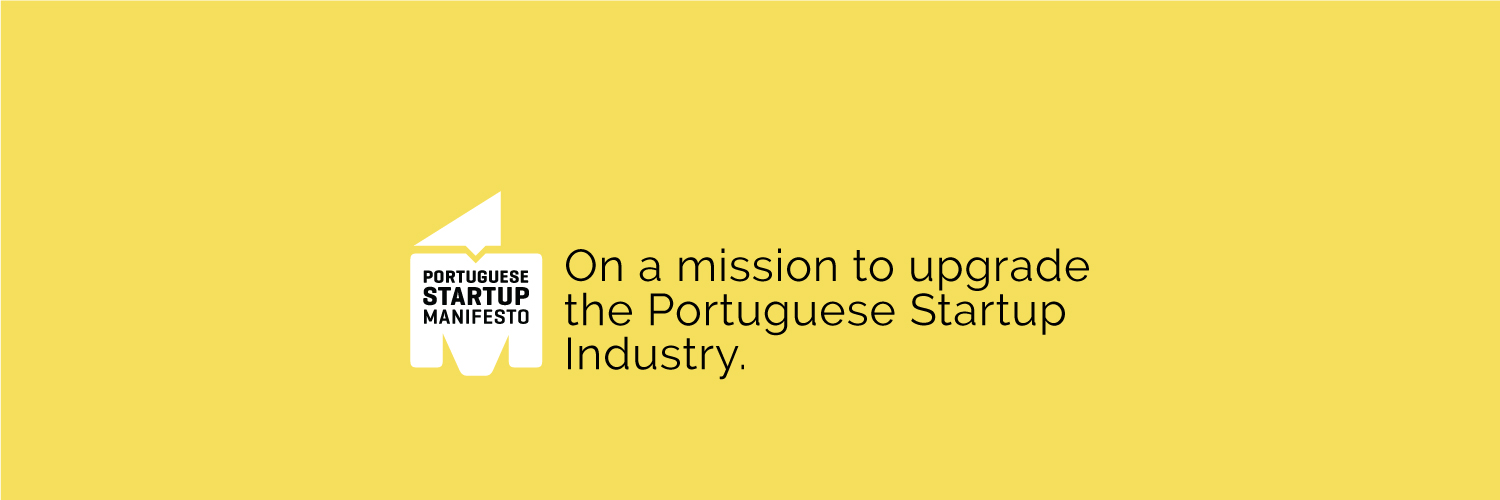
by maria | Feb 10, 2016 | Uncategorized

All startups struggle with PR. When you build your own business, you just want to get it out there in the press, but PR is not as simple as it seems.
You usually start with the general press release because, apparently, that’s all it takes. You then, forward it to the hundreds of press contacts you got from a friend of yours, and wait for magic to happen. However, truth is, magic rarely happens when it comes to PR.
To get PR right you should probably forget everything anyone has ever told you about how to do PR for startups (believe me I’ve been there myself) and take a different approach. Good thing we’ve got it covered…
Last week, we were lucky enough to have at our HQ in Lisbon, Robin Wauters, Editor and Founder of Tech.eu, to give a talk about how to get the press to talk about your startup.
Robin gave awesome advice to all the entrepreneurs in the room (totally sold out by the way) so we thought it would be cool to share it with anyone who is interested. Here are Robin’s 6 rules for PR:
Rule #1 – Do or build something mind-blowing
If you build something truly amazing and unique you will definitely draw some attention. Journalists love to talk about things they can understand and relate to, and if the product takes an innovative approach that’s the first step for getting some press coverage.
Rule #2 – Do your homework
You clearly need to know how journalists work. Journalists get all sorts of pitches on Twitter, Facebook, Whatsapp, they get hundreds of emails every day with press releases from random people they haven’t even met, and all of this keeps them super busy, all the time. So, if you want to get their attention you need to do your homework. Figure out what they write about, who their audience is, go read previous articles and pitch your business individually. Avoid, at all costs, the general press release for the masses.
Rule #3 – Build relationships first
Avoid reaching out only when you have something to share with the world. Invest in building relationships, other than sending sporadic emails or phone calls when you really need them (they might need you too someday, remember that). Go meet journalists at events and meet-ups, get yourself introduced by someone they know well and build a relationship from that moment onward.
Rule #4 – Craft a great story
You might not have a truly unique and amazing product but if you tell the story right, you’ll get some attention. Explain why the journalist you’re reaching out to should care about what you’re doing. Give him or her an angle: if you’re raised funding, specify how much, why, who from, and what for. If you’ve inked a great deal, tell him or her what it means for your business. If you’re releasing a new product, tell him or her how it differs from others. And please, make sure that in the meantime, you avoid common buzzwords such as ‘revolutionary’, ‘award-winning’, ‘ground-breaking’… (well, this list could go on forever).
Rule #5 – Learn how to deliver it
This is just like your pitch. When you get it started it’s pretty simple but as you do it over and over again, you adapt and improve. Do the same with PR. Figure out how you’ll reach out to journalists and then as you move along, test different email subjects, explain things with a different angle, work on the relationship you have with each one of them, etc.
Rule #6 – Do all of the above BEFORE you start pitching to journalists
It’s as simple as that. You shouldn’t do this overnight, PR takes time. But, just before you panic and hire a PR agency to do that for you, remember that no one will know your product like you do, no one will tell the story like you do.
Sincerely, hope this helps if you’re getting your PR strategy started, and if you think we got it all wrong, let us know, we love to talk about the topics we cover.
The post The 6 Rules of PR for Startups appeared first on Lisbon Challenge.

by maria | Feb 10, 2016 | Uncategorized

If you have a startup in tourism you know how meeting the right people and closing significant partnerships is important. You need to be in the right place, at the right time, and that’s just what BTL, the International Tourism Exhibition in Lisbon, will do for you.
All the main players in tourism will be there, from world known hotel chains to famous travel bloggers and music festivals, making BTL the epicentre for tourism related businesses.
However, because Portugal is not only a country of tourism but also entrepreneurship, this year BTL has partnered with Beta-i to have a specific area on Startups & Innovation. Together, we’ll select around 30 startups to showcase at the exhibition and to also pitch their businesses to potential partners.
Apply here until the 18th of February and show your startup to the world.
The post Startups in tourism wanted to showcase at the International Tourism Exhibition appeared first on Lisbon Challenge.

by maria | Feb 4, 2016 | Uncategorized

Yes, Brussels does talk “startup”! If you follow my Facebook account you’ve seen that since starting my role at Beta-i, I’m more often than not in Brussels. And you’re probably wondering what is that all about: Brussels and startups?! Well, there is an awful lot happening in Brussels regarding startups and a considerable number of people, both at the Commission and in other organisations, focusing in creating a globally competitive Startup Industry in Europe.
At Beta-i part of my role is to manage the four European projects we’re working on. Through these projects we build direct relationships with 20+ partners from other member states – to the point that I have them on my whatsapp account. These partners range from accelerators to incubators, research agencies, startup networks, media channels, universities and other sorts of organizations. All of them are key players in the European Startup Industry. This means that, on a daily basis, we at Beta-i are going across borders for our startups, partners and overall for the Portuguese Startup Industry. We work together with these partners and have the amazing opportunity to get to understand what is happening across europe both locally and across borders. Here are a few things that I learned on this journey so far:
The Europe of Startups is growing united
Things are moving really fast. Startups are not something from Silicon Valley anymore. They are here and they are ours. They are European! From London, Paris, Berlin, Lisbon, Madrid, and very often they have more than one nationality (e.g. Estonian & Swedish, Portuguese & German or Italian and French). The Europe of Startups is a more borderless Europe, a more international one. There is a startup culture that bonds everyone with the same ‘language’. Startups think globally and the challenges they have are pretty much the same no matter where they are located. Hiring a data scientist or growth hacker is nearly as challenging for a startup in Stockholm as for a startup in Athens. All of these factors mean that this industry is speaking the same language across borders and has a collaborative approach to solve the challenges it faces.
Politicians want to act
Startups are important. They know that. They are crucial for the future of European economy. Trust me, they really do know that! Many of them are making time in their agendas to sit down with us, learn about what is happening and identify together with the people from the industry what needs to be done for the startup industry to scale-up in Europe. During these next months, with the Dutch presidency in place, it is expected that a few major steps will be taken that strongly impact startups in Europe. There are talks that this may be the chance to push through a European Startup Visa to allow startups to hire specialized resources from outside Europe whenever there is an identified shortage in Europe. From an early stage, the Commission has been backing up the growth of the Startup Industry in Europe and many initiatives have been put in place to support that. Startup Europe, DG Connect and COSME, just to mention a few, are some of the initiatives currently active and aiming to help Startups in Europe to tackle the current challenges they face in the most diverse areas (e.g. access to finance, access to talent or soft landing at member states for market expansion)
The time is now
Startup is no longer a buzzword. Startups are an industry. It is no longer about starting up the startup economy (forgive me the redundancy). Now it is about scaling up this industry. Corporates have recognized the innovative and strategic value of working with startups, politicians know their economic value and the ecosystem is mature enough that key players are emerging as experts, with best practices and know how that are beyond the initial experimental phase.
What does this all mean for startups and other players in this industry? Simple: if you speak now, you will be heard. It is time to become a changemaker. Take advantage of this alignment of factors and build on the momentum that is there.
With this in mind, Beta-i is launching the Portuguese Startup Manifesto movement in 2016, when all eyes are set in Portugal. Now a mature ecosystem, with several international players moving in, the time is right for Portuguese entrepreneurs, startups, investors and other key stakeholders to voice their ideas and contribute in defining the necessary actions to upgrade the Portuguese Startup Ecosystem. The goal is to put in place the measures that will upgrade the Portuguese Startup Industry and allow Portugal to become a competitive hub for startups worldwide.
Join the discussion using #PTstartupManifesto or drop by an event near you. Learn all about it here.
The post How Can European Startups Become the Best? Find Out. appeared first on Lisbon Challenge.

by maria | Feb 4, 2016 | Uncategorized

Alright, we all know how difficult it is to get into a top accelerator. You apply with your startup, you wait for the reply and then when the time comes, it’s either the cheer look on your face or the disappointment settling in. And filling in the application plays a major role in this.
So, how can you get the perfect application that will get everybody’s attention? What should you add and emphasize? What’s the “make it or break it” factor? Well, just keep on reading because you’re about to find out.
We get hundreds of applications for Lisbon Challenge and it’s a long and arduous job to go through each one of them. In order to move on to the next phase, you really need to stand out by following these tips:
-
Team, team, team
I know this might sound a bit of a cliché. Everyone talks about the importance of having a good team but that’s no coincidence. Whenever we go through applications, the team is usually what grabs our attention. Explain exactly what each one of you does, the background, why you’re building this startup together, etc. We definitely value teams that cover the 3 main areas (tech, business and design) so, if you have an engineer, a designer and a business person in your team, you’re on the right track.
-
Do your homework
It’s really important that our accelerator matches your startup and your own expectations. For Lisbon Challenge we only take startups that already have a product or prototype and that are looking to grow their business. Take a look at our website and go through our list of alumni startups. Check the program and if you have any question email our Program Director, Bashara Hinnawi, at bashara.hinnawi@beta-i.pt
-
Get a recommendation
Most of the selected startups for Lisbon Challenge were referred to us by someone within our network of entrepreneurs and investors. See if you can find someone who has been through Lisbon Challenge before or someone close to Beta-i and ask for a referral.
-
Be detailed and know your numbers
Explain your product and business well. If you’re building a complex technical product, take your time to explain it and find a comparison so that it’s easy to understand the importance of your solution. You should also know how to explain your vision and how big the market is. If you already have users, page-views, subscribers or downloads add that information in the application – you gotta know your numbers.
-
No bullshit (go straight to the point)
Even though you have to be detailed about your product and know your numbers, that doesn’t necessarily mean bullshit. Go straight to the point and answer the questions. If you don’t have numbers to show don’t try to fake it.
-
Surprise us – stand out from the crowd
If you want to get noticed you need to stand out from the crowd. Don’t be like everybody else that says they’re gonna get all their users through social media with no further explanations. Think of new channels and mediums that will let your startup shine. Make an effort to do the video properly as it plays a big role in the application phase and is a great opportunity for you to stand out too.
Now that all the tips are here, it’s entirely up to you to get it right. Apply to Lisbon Challenge until this Sunday, February the 7th, and grow your startup from Lisbon to the world.
Not ready for Lisbon Challenge yet but have an idea for a startup? Check out Beta-start, our one month pre-accelerator for you to validate and test your business idea in Lisbon.
The post 6 Tips for Getting into Lisbon Challenge (or any other accelerator) appeared first on Lisbon Challenge.






